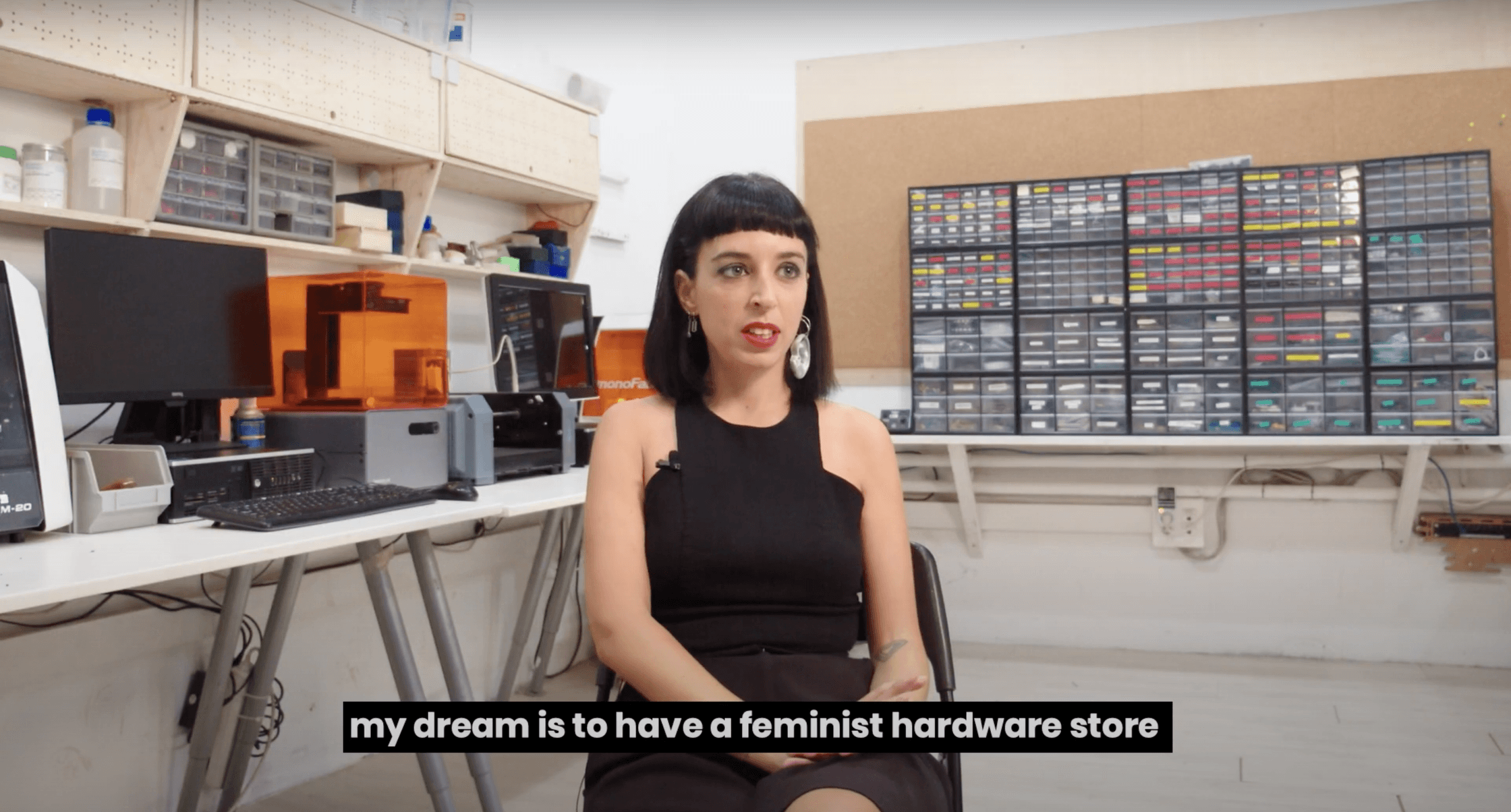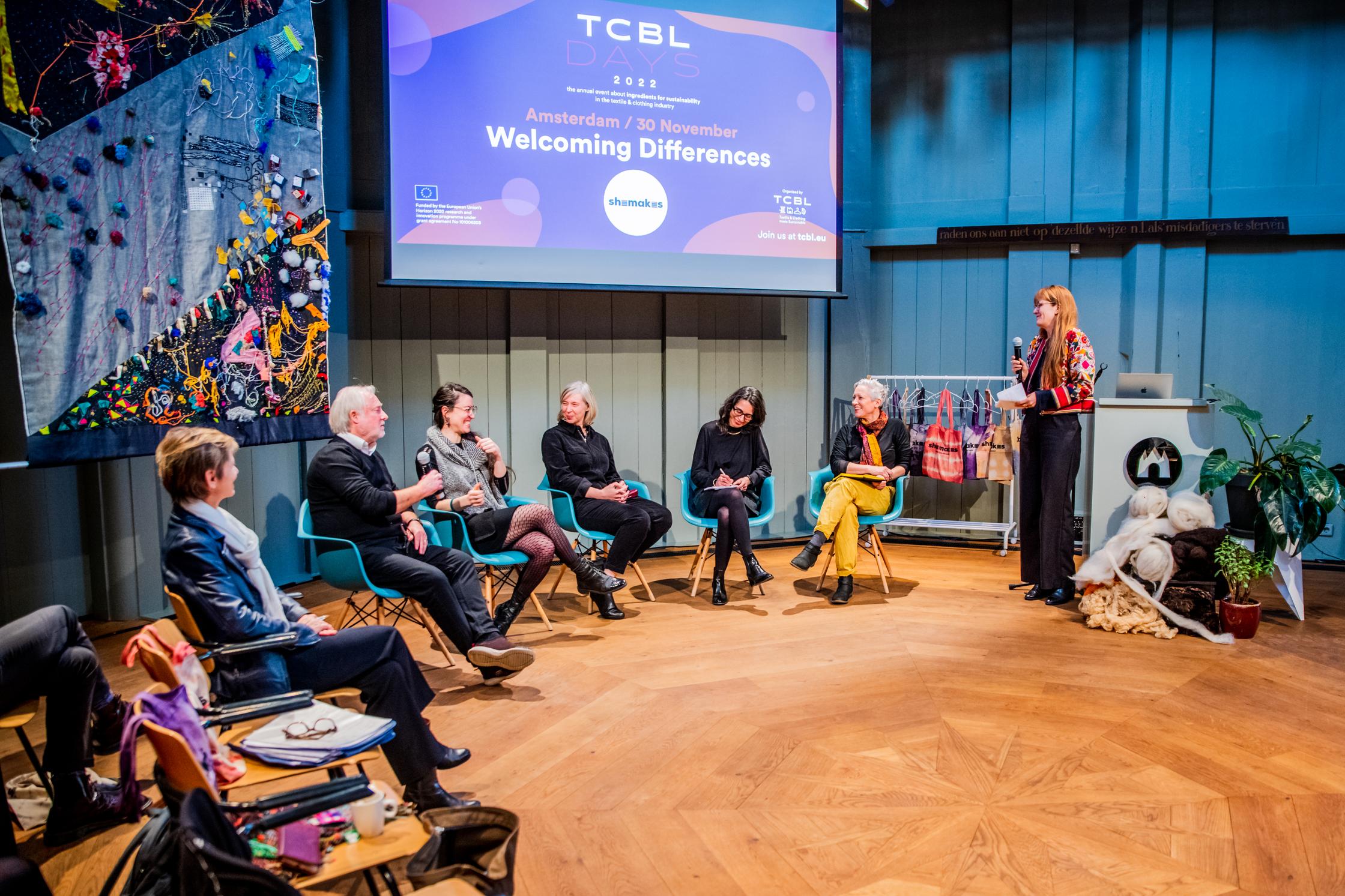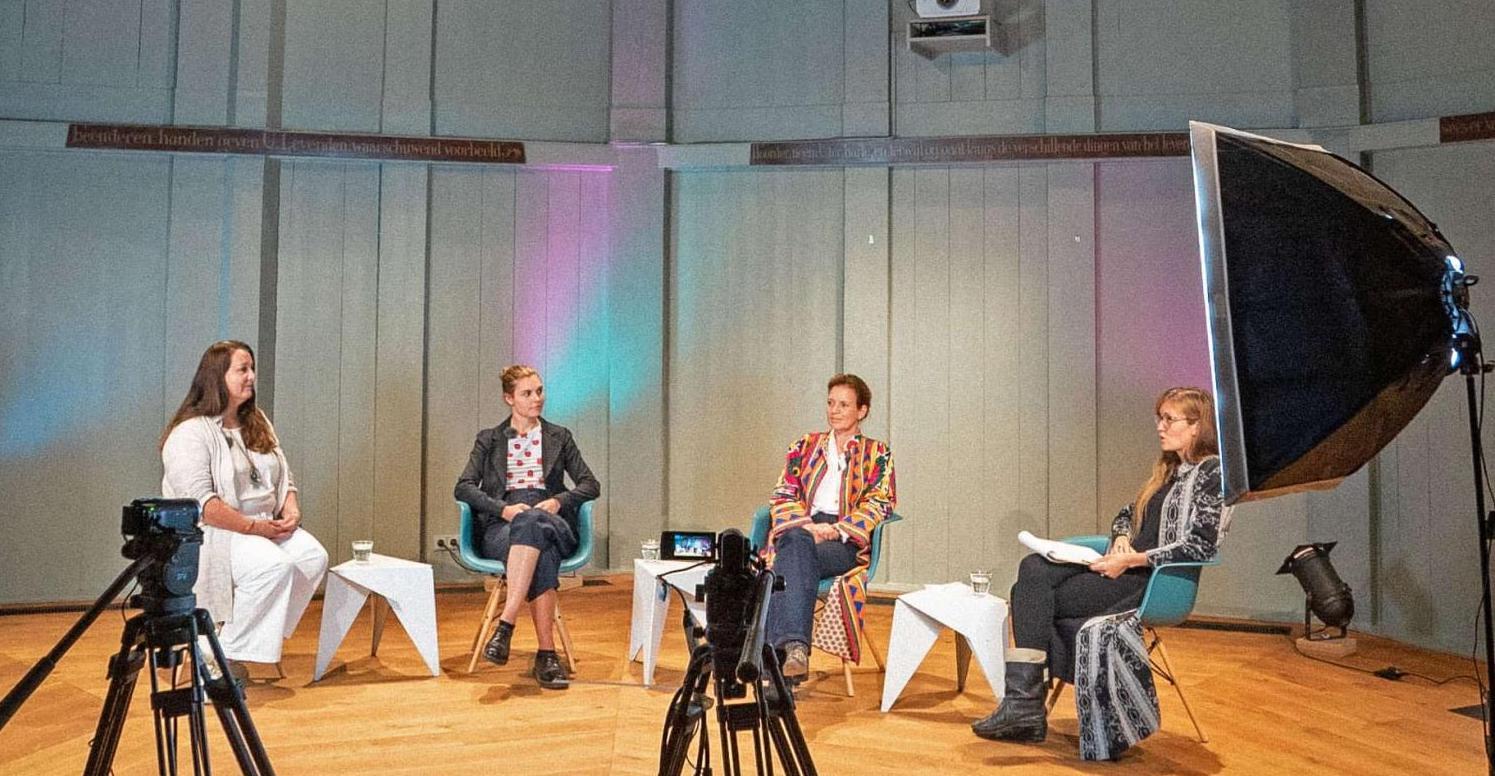For women working in the textile and clothing industry, strong networks nurture innovation. We asked twelve women about their experiences entering the workplace, learning and leading in tech. These are their stories.
The path to innovation isn’t easy. Forging your own way often means challenging traditions, taking risks, and facing adversity. For the women working on the cutting edge of the textile and clothing industry, the road is particularly rocky. Why? Because innovations that embrace technology and skills like electronics, complex machinery, and hands-on fabrication are often associated with masculinity. Women also face social challenges in the workplace, from governance structures and management that do not make way for biological needs to outright safety issues like harassment. Shemakes aims to combat outdated stereotypes by empowering women in our network through learning programs, research, mentoring sessions and connecting them with innovative female peers.
For the shemakes innovation narrative series, we interviewed a selection of women who have recently embarked on their own trailblazing journeys through research, product design, or start-ups. This article summarises some of the answers we received, divided by theme. By sharing these stories, we hope to inspire more women to join us as we move towards a more sustainable, circular, socially responsible, and equal fashion, textile and clothing industry.
Want to become an innovator yourself? Join Waag's yearly Textile Academy
Women and work: help or hindrance?
When we talk about women in the workforce, it’s easy to get bogged down in the negatives. But, of course, there are also upsides. Our interviewees celebrated being able to connect with female peers, receiving support from other women, and the new opportunities becoming available now that the topic of female entrepreneurship is in vogue.
“I am often asked if being a female entrepreneur is an opportunity or an obstacle,” says Rym Trabelsi, co-founder of Clear Fashion. She doesn’t believe that one’s gender determines skill level, but thinks that many women have internalized social constructs about female limitations. “I don’t have limiting beliefs on my skills to learn as a human,” she says. “Clear Fashion just raised 1.4 million euros, and during all this process I wasn't questioning my capacity to raise this money as a woman. I was thinking that my team was amazing, that I had the skills to do it, and it worked."
Lisa Revol, founder of Azaadi, told us that she was “mostly helped by women'' on her entrepreneurial journey and that her team today is 100% female. “I think that fashion mostly attracts women thanks to its artistic and cultural aspect,” she says.
Too often, our interviews revealed chronic social issues of discrimination against women in the workplace, such as the perception of lack of competence that results in many women lacking confidence in male-dominated environments. For this reason, we believe a different workplace framework would be beneficial.
Jessica Stanley, who participated in Fabricademy from 2018 to 2019 at TextileLab Amsterdam, has a background in physics and is pursuing a PhD in e-textiles at Nottingham Trent University’s Department of Engineering. Jessica’s perspective on being a woman in a male-dominated space is best described as “having to choose between being friendly and perceived as incompetent or being assertive and perceived as bossy.”
“I've lost count of the number of times I've been talked down to, interrupted, not been listened to, or not been taken seriously,” Jessica confesses. “I think that the most practical ways to support women are by providing mentoring and training opportunities, and access to communities of other women working in similar areas, or experiencing similar issues. I've benefited hugely from access to female role models in my field (e-textiles), and from joining female-dominated e-textile communities.”
Kathy Sinclair has a background in engineering and computer science, is an alumna of the 2020-2021 Fabricademy, and is the founder of Aegean Idea Lab in Paros, Greece. From her perspective, providing adequate and equal support for childcare is crucial to keeping women in the field. “The biggest drop off I saw in technical women voluntarily leaving their high-powered careers was to care for children,” she says. “If more men were actively involved and supported in caring for children, too, it would benefit everyone.”
Supportive environments and community foster innovation

Shemakes acts as a facilitator in fostering a supportive environment and offering its participants access to a strong community network. But, in order to build an environment that fuels innovation, we first need to know what that looks like. When we asked our interviewees about features of environments that impacted their careers, they frequently cited the need for a non-competitive atmosphere, an experimental spirit, and to be surrounded by like-minded people cheering each other’s accomplishments.
Lara Campos, who participated in Fabricademy alumna from 2018 to 2019 at Fab Lab Barcelona, encourages us to adopt a broader perspective towards planetary species and genderless systems. “I believe that innovation should be nurtured through inclusion and collaboration, co-creating and combining different techniques and different perspectives over things. We should shift our mindset to conceive of ourselves as humans that are not alone; we are a system of beings and I think that's the inflection point we need to understand collaboration.”
Bela Rofe, a 2019-2020 Fabricademy alumna at TextileLab Amsterdam with an educational background in anthropology, currently works as a freelance researcher, textile/biomaterial artist, and concept developer. “During Fabricademy, I could explore ideas of merging humans with the micro world, like bacteria, fungi, etcetera,” Bela recounts. “And that was so new to me. And I was like, wow, this is the most exciting space I've operated in for so long. Because you didn't have to be a scientist (…) You can have these really curious, outlandish questions and ideas, and people will sit with you and take the time to consider them and work with them. So Fabricademy really created this support and encouragement around who I was and who I wanted to be and the practice that I wanted to evolve.”
Jessica Stanley notes that participating in Fabricademy challenged her to expand her knowledge and embrace mistakes, which was key to overcoming difficulties on her professional path. “The main gap was overcoming my imposter syndrome,” she says. “Everything else I've been able to pick up, partly because being in Fabricademy, I learned how to not be afraid of being dropped into a situation where there are new machines or techniques I didn’t know how to use.”
Capturing the magic

To anyone working in a creative field, it’s obvious that the magic of innovation happens in the right place, with the right attitude and the right people. Shemakes aims to facilitate that magic by providing the best environment for women of all backgrounds and career trajectories. Through our interviews, we found that, while many of the traditional difficulties still exist for modern working women in the T&C industry, having a strong supportive environment and encouraging network can help offset some of the negatives. The road to innovation isn’t easy, but the right travel companions can make even the rockiest roads seem smoother. Whether you’re an artist, engineer, teacher, researcher, or designer, if you’re looking for support for a T&C innovation or if you just want to learn new skills and encourage others, reach out to a shemakes lab near you to find out how to get involved.


